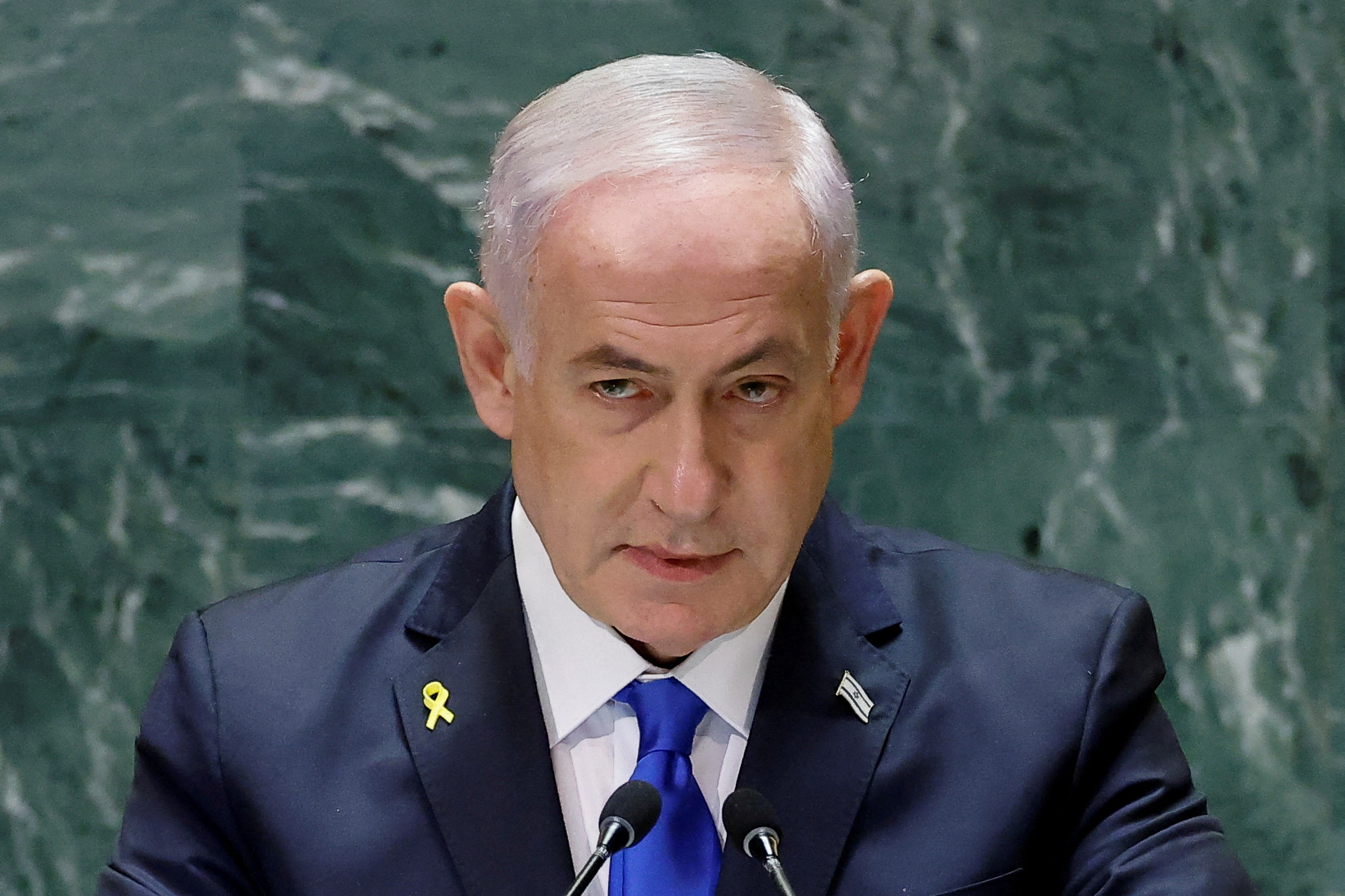Why Israel Really Went to War With Iran
Time for some radical honesty.
by Aaron Bastani
27 June 2025

Billionaire-backed? Not us. Unlike mainstream media, Novara Media runs on the support of 12,000 people like you, which keeps us editorially independent. Chip in today and help build people-powered media.
The Islamic Republic of Iran just proved far more resilient than most critics imagined. During its recent conflict with Israel, key nuclear and missile sites across the country were hit, residential buildings collapsed and fuel supplies were disrupted. Some 627 Iranians were reportedly killed under Israeli fire. Among the dead: two dozen leaders within the army and Revolutionary Guard, as well as prominent nuclear scientists.
But despite all that – and not to mention the almost 5,000 Iranians who’ve been injured – the last fortnight represents a triumph of sorts for Tehran. This isn’t something you’re meant to say in the British media, but that doesn’t make it any less true.
Firstly, the ‘12 Day War’ demonstrated that, in the absence of support from Washington, Israel is not an existential threat to the Republic. While it may have F35s and ICBMs, Iran’s territory is at least 75 times larger and its indigenous ballistic missile program is impressive. Without a constant influx of US-made interceptor missiles, it’s clear that Israel would struggle to defend itself in a war of attrition.
But besides inflicting damage on Israel for the second time in 12 months, as well as highlighting the country’s utter dependence on US hardware, the primary win for Tehran is domestic. Nationalism is a powerful force for Iranians – a people who consider themselves, like China and India, to be members of a ‘civilisation-state’. The idea that millions would support a coup – while under attack from a foreign entity – always seemed improbable. Now it is absurd. If Tehran can view the last several weeks as a triumph, son of the last shah Reza Pahlavi will draw the opposite conclusion. The idea that he represents an alternative leadership looks more delusional than ever.
Clearly Israel waited for its moment. Assets were patiently built up inside Iran, while a mix of surveillance and human intelligence allowed Israeli security services to kill some of the most senior figures within the Revolutionary Guard. And yet, the timing is strange.
Yes, the Iranian-led ‘Axis of Resistance’ is substantially weakened, with Hezbollah diminished and Assad exiled in Moscow. But the nature of the attack, intended to foment a sense of national panic, was likely the plan for after the death of Iran’s supreme leader, Ali Hosseini Khamenei.
Remember, Grand Ayatollah Khamenei is only the second person in the job after Ruhollah Khomeini died in 1989. He is analogous, therefore, to John Adams as Washington’s successor in the early years of the American republic. Now 86 years old, speculation has intensified regarding his potential replacement. As ever with politics, that means disagreement – and factions.
A post-Khamenei Iran, potentially uncertain and divided, would therefore have been an opportune moment for Israel and those elements within the Iranian diaspora – not least Pahlavi himself – to attempt regime change. But Israeli prime minister Benjamin Netanyahu struck now, while Khamenei remains very much alive. Why?
The only answer that makes sense is Netanyahu – and the rest of the Israeli government – sought to deflect attention from the ongoing genocide in Gaza, while attempting to relieve domestic political pressure.
After all, the claim that Iran was on the cusp of building a nuclear weapon certainly doesn’t stack up. Speaking to CNN’s Christiane Amanpour, the director general of the International Atomic Energy Agency (IAEA) said there was no “proof of a systematic effort” by Tehran to build the bomb. Just three months ago, Trump’s own director of national intelligence, Tulsi Gabbard, told the Senate that US intelligence had reached the same conclusion. Yet Israel not only arrived at a different judgement – but apparently viewed it as sufficiently overwhelming to immediately start a war.
Just one day before the Israeli military killed some of the most senior figures in Iran’s armed forces, the Knesset narrowly rejected a vote to dissolve itself – a step which would have catalysed early elections. “It’s more urgent than ever to replace Netanyahu’s government,” Israeli Labor politician Merav Michaeli said before that vote. “It’s urgent to start rebuilding and healing the state of Israel.” Yet within 24 hours Israel was, to the surprise of the world, suddenly at war.
Meanwhile, hostility to the government from protesters shows no sign of abating. A fortnight earlier, at the end of May, protesters even entered the Tel Aviv HQ of the Likud party. Having accessed the building they went to the 11th floor, where Netanyahu’s office is located, and proceeded to chain themselves to staircase railings. While rarely reported in recent weeks, the Israeli government is experiencing an unprecedented political crisis.
Then there’s the fact that support for Israel, even among its most strident allies, is in freefall. Days before that Knesset vote, which would have meant the likely demise of Netanyahu, Reform leader Nigel Farage told Tzipi Hotovely, Israel’s ambassador to the UK, that her country was “running out of friends”. That was in response to the news that Britain, alongside Australia, Canada, New Zealand and Norway, had imposed sanctions on two far-right ministers in Israel’s government: Itamar Ben-Gvir and Bezalel Smotrich. Without the support of Ben-Gvir and Smotrich’s ultra-nationalist parties, Netanyahu does not command a majority.
With the walls closing on, both at home and abroad, it seems likely the Israeli PM chose to commence an operation long in the making – but always intended for the aftermath of Khamenei’s passing. In other words: Netanyahu seemingly undermined his own country’s security and made it vulnerable to attack by another regional power, for personal gain.
Ultimately, Benjamin Netanyahu’s narcissistic short-termism served to bolster Tehran, discredit the Iranian opposition and lose Israel yet more international support. Now Reza Pahlavi can add his name to the long list of political figures who were nothing more than tools to be discarded (former US president Joe Biden is top of that list). The key question for British politics is now this: how eager are Keir Starmer – and Nigel Farage – to join him? And does continued support for such a belligerent politician serve Britain in the slightest?
Aaron Bastani is a Novara Media contributing editor and co-founder.


